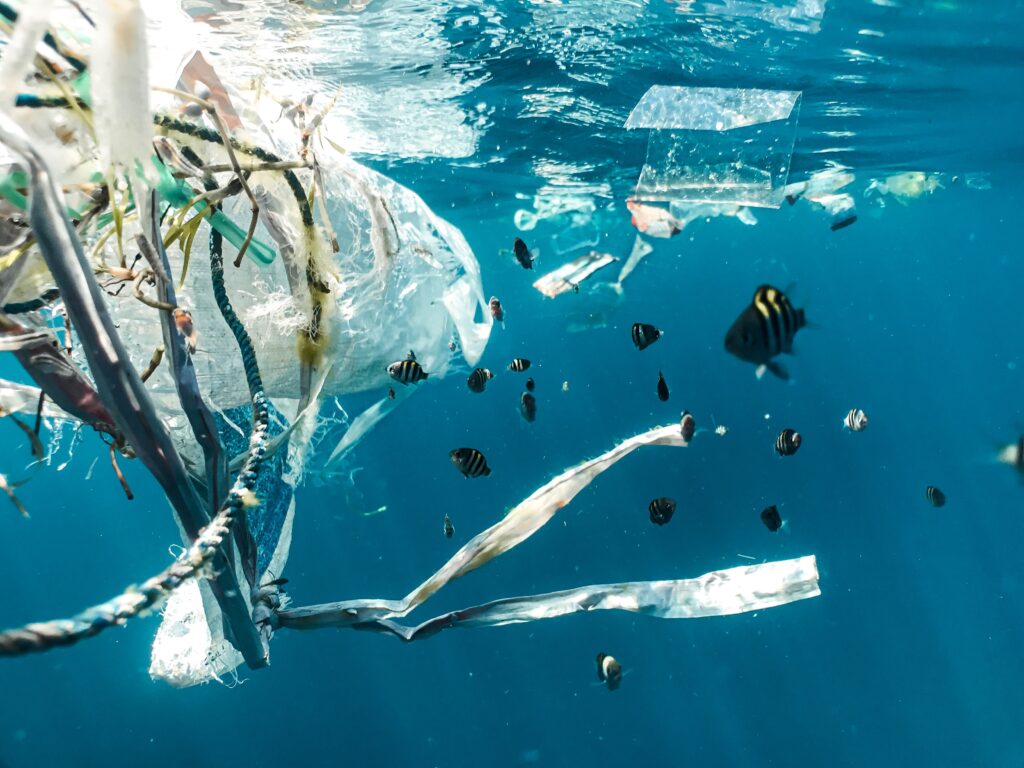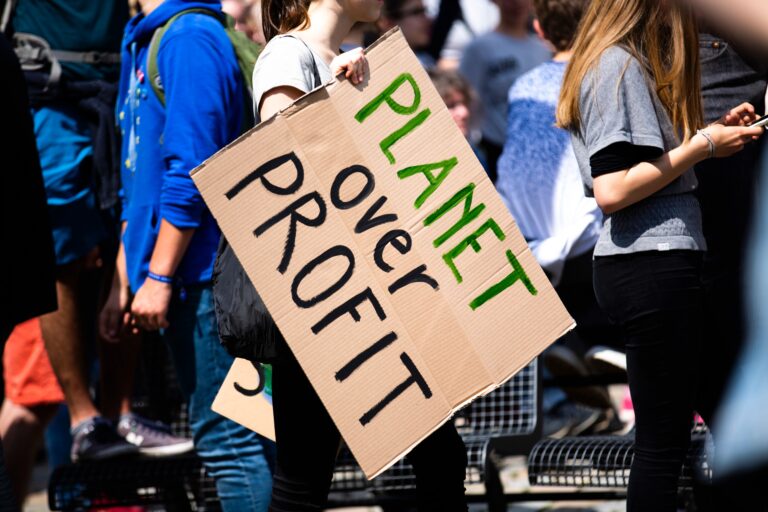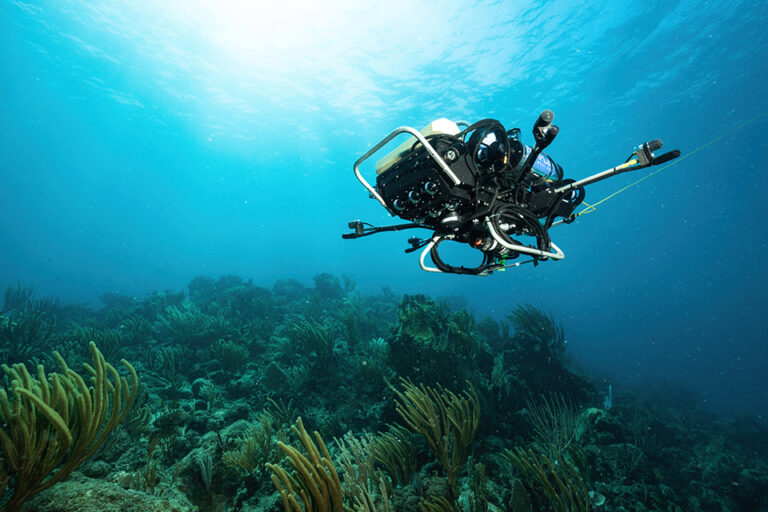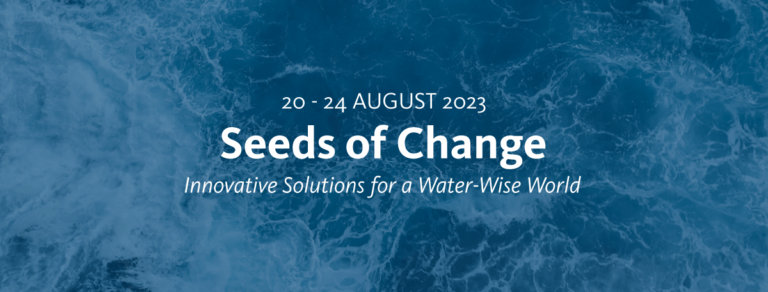A healthy ocean supports the well-being of coastal communities by supplying food and employment, sustaining economic growth, and regulating the climate.
The fact that billions of people around the world, particularly the poorest, depend on healthy oceans for food and employment highlights the critical need to use, manage, and conserve this natural resource in a sustainable manner.
Yet there is a triple environmental crisis affecting the oceans: (1) the effects of climate change on the largest global carbon sink; (2) the loss of biodiversity; and (3) pollution, particularly plastic pollution. Along with harming the water, this also puts people’s safety, way of life, and access to food in peril, particularly in coastal towns.
Oceans are the world’s greatest carbon sink because they absorb greenhouse gases and considerably lessen the effects of climate change. However, oceans are in danger due to sea level rise, acidification, and rising temperatures. In comparison to terrestrial forests, “blue carbon” sinks like mangroves, tidal marshes, and seagrass meadows sequester and store more carbon. They shield coastal areas from storms and flooding as well. Achieving the triple win of addressing the climate crisis with its crucial role in storing carbon and reducing ocean acidification, as well as ensuring coastal communities are safer and more prosperous, can be done by properly valuing the role played by mangroves and seagrass beds.
According to the FAO, the primary fish farming sector alone employs about 58.5 million people worldwide, with about 21% of those workers being women. According to estimates, 600 million people depend at least partially on fisheries and aquaculture for their livelihoods, including subsistence and secondary-sector workers and their dependents. The majority are small-scale, artisanal fishers and fish producers who live in poor nations. With an even larger percentage in many developing nations, aquatic foods provided roughly 3.3 billion individuals with at least 20% of their average daily intake of animal protein in 2019. (FAO 2022). However, despite the fact that ocean resources contribute to growth and income, anthropogenic impacts have brought them to the verge of collapse. The FAO estimates that the proportion of fisheries stocks that are not within biologically acceptable levels is global.

Marine pollution threatens oceans from a variety of causes, largely from land but also from maritime activities. Microplastics have been discovered all throughout the planet, including in the food chain, air, oceans, rains, and ice in the Arctic. Plastics are one of the most obvious components of environmental pollution. There is growing evidence that plastic pollution has negative effects on human health, including the presence of microplastics in our blood, in addition to harming economies, ecosystems, and food security. According to some projections, the overall cost of managing plastic trash for governments between 2021 and 2040 will be US$670 billion. The cost of inaction can also be substantial for businesses, with US$100 billion in yearly financial risk predicted by 2040. It takes a variety of measures to combat plastic pollution.
Complex, multi-sectoral, and country-specific solutions must be combined to address plastic pollution. It calls for better solid waste management, the development of a more circular economy for the public and private sectors (including designing out waste and pollution, creating substitutes for single-use plastics or redesigning them to make them more recyclable, encouraging the growth of new industry sectors like reuse/remanufacture, and creating more financially viable recycling markets), and ecosystem restoration through cleanup.
There is a strong maritime economy. Trade in marine shipping is worth trillions of dollars. The value of ocean tourism is likewise in the trillions. The maritime economy also depends on offshore energy sources including wind, gas, and oil.
It is important to look at how climate, biodiversity, and development relate to different oceanic sectors. Instead of continuing with siloed business as usual, a sustainable and integrated development approach of the many economic sectors is required for a healthy ocean.
Coastal people heavily rely on marine resources for their livelihoods and food security, especially in small island developing states. Participating in habitat conservation, restoration, and sustainable management can generate much-needed money for these communities in the short term while fostering socioeconomic resilience over time.
The Effect of Covid 19
Worldwide, the spread of COVID-19 impacted people’s lives, communities, and businesses, including those whose livelihoods depend on the oceans.
This includes fisheries, which are important for food security and livelihoods but are in danger when they are not managed sustainably, and value-chain disruptions endanger the capacity of fishermen and fish workers to sell their products. The Bank provided assistance to its client countries in dealing with this challenge through its sustainable fisheries portfolio.
Ecotourism and seaside tourism were among industries affected by COVID-19; as a result, workers saw a decline in income or even lost their jobs entirely, as well as heightened health and safety issues. Long-term disruptions of the tourism industry have serious repercussions for the nations whose domestic economies depend on it. The World Bank helped its client countries recover better by investing in local communities to quickly sustain their means of subsistence in industries like fisheries, tourism, and ecotourism. Among these initiatives was World Bank assistance to smaller businesses, which lessened some of the effects of employment losses, notably those on women and disadvantaged groups.
Finally, the COVID-19 problem presented challenging short-term trade-offs between health and the environment, putting further strain on solid waste systems and increasing the usage of single-use plastics, along with a decline in recycled materials due to hygienic concerns and the low cost of virgin plastics. Projects funded by the World Bank that were started before the pandemic are now more important than ever. The World Bank has been addressing this issue and will continue to do so.
We provide funding for recycling, clean production, waste management, policy changes for carbon pricing, and green economic development. We also aid nations like Bangladesh, Lao PDR, Morocco, and Pakistan in their transition to a circular economy. Medical waste is frequently dumped into rivers that flow into oceans in low-capacity areas with stretched or collapsed waste systems. The World Bank increased its assistance for COVID-19 emergency project operations involving healthcare waste management, with the Bank’s Environment team strengthening and improving healthcare waste management and giving medical professionals equipment and capacity-building opportunities. (utilizing Occupational Health and Safety guidelines).




